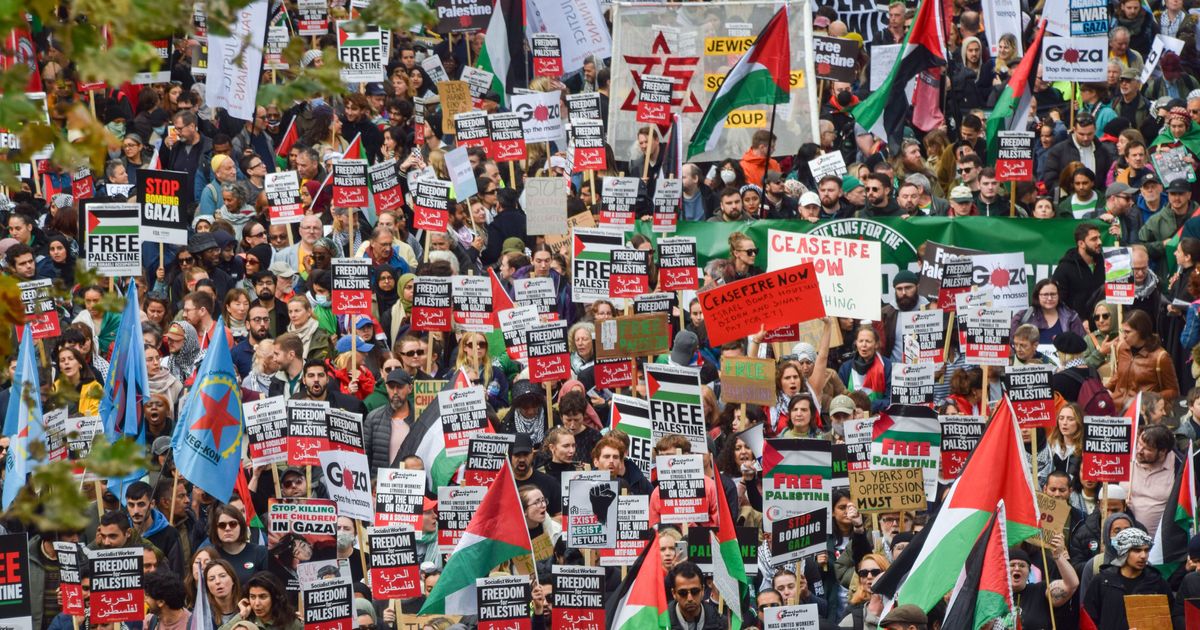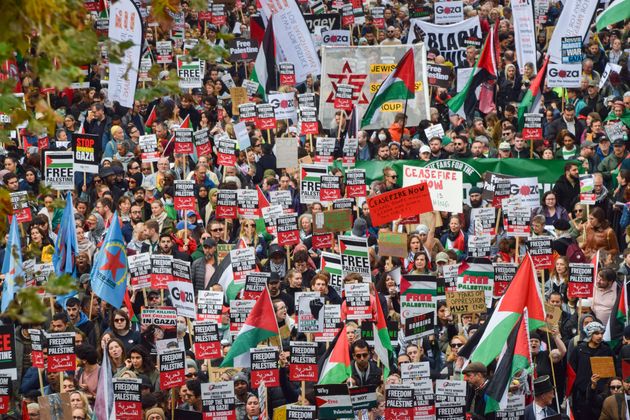
Rishi Sunak has hit out at “provocative” plans to hold a pro-Palestine march on Remembrance Day.
The prime minister said it was “disrespectful” for the demo to go ahead on November 11 because of the “clear and present risk” of the Cenotaph and other war memorials being “desecrated”.
Sunak said he had asked home secretary Suella Braverman and the Metropolitan Police to “do everything necessary to protect the sanctity of Armistice Day and Remembrance Sunday”.
Advertisement
His comments, in a statement released on social media platform X (formerly Twitter) came just hours after security minister Tom Tugenhadt said the march was “inappropriate”.
Sunak said: “The right to remember, in peace and dignity, those who have paid the ultimate sacrifice … must be protected.”
Tugendhat said this morning that he had written to London mayor Sadiq Khan, Westminster Council and the Met asking them to take action.
Advertisement
But he was accused of “posturing” by Khan, who said only government had the power to ban marches.
The calls for the marches to be controlled or cancelled come amid fears they could disrupt the two-minute silence on November 11 commemorating those who lost their lives in the conflict and cause damage to the cenotaph.
The Public Order Act 1986 allows the home secretary to ban protests from certain areas if the Met believes there is a disorder risk.
However, organisers of the march have insisted they will not go past the Cenotaph, where politicians and veterans will lay poppy wreaths for Remembrance Sunday the following day.
The Met Police have also made clear that protest groups do not have any plans to march on Remembrance Sunday.
Met Commissioner Sir Mark Rowley has promised to “ensure” any demonstrations will not interfere with Remembrance weekend events.
Advertisement
Home secretary Suella Braverman has called pro-Palestine protests “hate marches” and has suggested they are the cause in the rise of anti-semtism seen in the UK since the war began.


